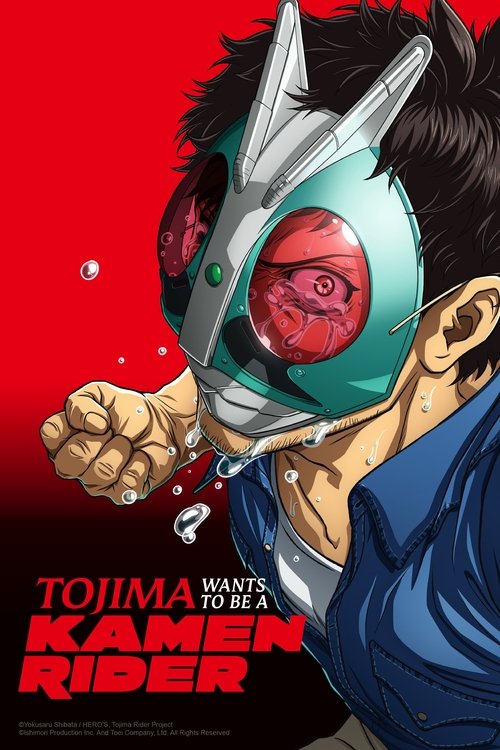
Ask Your Own Question
What is the plot?
Nobu arrives at Yagi's company to promote the Anpanman story by reading it aloud to a group of children. She prepares with enthusiasm, hoping to share the joy and meaning behind Anpanman with the next generation. The children gather around, but their initial curiosity quickly fades as Nobu begins reading.
As Nobu reads, the children show little interest, fidgeting and whispering among themselves. Some openly express boredom, saying things like "I'd rather play outside" or "This isn't fun." Nobu notices their cold reaction but continues reading, trying to maintain her composure and hoping to win them over.
The scene shifts to Nobu's apartment, where Editor-in-Chief Tokaibayashi returns after a six-week absence. He greets Nobu and Taka, saying, "Hey, Nobu, it'll be a while," indicating he is back for an extended period. His return brings a sense of normalcy and support to Nobu, who has been struggling with the recent lack of enthusiasm for Anpanman.
Meanwhile, Takashi's film "The Gentle Lion" is released to the public. The film receives positive reviews and is well-received by audiences, marking a significant achievement for Takashi. The success of the film contrasts with Nobu's experience at Yagi's company, highlighting the different paths their creative works are taking.
Back at Yagi's company, Nobu finishes reading Anpanman to the children. The children remain unimpressed, and some leave before the story ends. Nobu feels disheartened but tries to hide her disappointment. She reflects on the experience, wondering if the message of Anpanman still resonates with children in the current era.
The episode ends with Nobu returning home, where she shares her experience with Taka and Tokaibayashi. They offer words of encouragement, reminding her that not every effort will be met with immediate success, but the act of sharing stories is still valuable. Nobu listens, taking comfort in their support, and resolves to continue her work despite the setbacks.
Related Titles
Browse All Titles →
What is the ending?
Short Summary
Episode 118 of Anpan opens with Nobu reading the Anpanman story to children at Yagi's company, but the children show no interest in the tale. The episode marks a significant time jump, revealing that three years have passed. The narrative progresses toward the emotional resolution of Nobu and Takashi's story, with Nobu's surgery having concluded. Despite facing mortality and the possibility of not surviving, Nobu experiences a miraculous recovery. The episode culminates in a profound conversation between Nobu and Takashi about the continuation of life and legacy, with Nobu expressing that even if her life ends, the torch of life will be passed to the next generation, much like Anpanman's face is remade. Takashi responds with unwavering support, affirming that Nobu's presence gives him strength to persevere. The couple's future together remains open-ended, allowing viewers to imagine their continued life together.
Expanded Narrative Account
The episode begins in an ordinary setting at Yagi's company, where Nobu has taken on the task of reading the Anpanman story to a group of children gathered there. She sits with the children around her, opening the familiar tale that has become so central to her life and the lives of those around her. However, as she reads, the children display no enthusiasm or engagement with the story. Their indifference creates a quiet moment of disconnection, suggesting that the simple narrative that once held such power may not resonate with every audience, or that the children's minds are elsewhere.
The narrative then shifts dramatically in scope. Three years have passed since the events viewers have been following. This temporal leap compresses years of life into a single transition, indicating that significant time has elapsed in the lives of all the characters. The world has moved forward, seasons have cycled, and the characters have aged and changed.
The episode reveals that Nobu has undergone surgery. The procedure has concluded, marking a critical juncture in her medical journey. Takashi has endured the anxiety of waiting during this time, spending days filled with uncertainty and fear about whether Nobu would survive the operation. For Takashi, Nobu represents an enormous presence in his life, someone whose existence is absolutely essential to him. The thought of losing her has weighed heavily on him throughout the surgical period.
As the episode progresses, a miraculous development occurs. Despite the gravity of her condition and the real possibility that she might not recover, Nobu regains her health. She survives the surgery and begins to recover, defying what may have seemed like a dire prognosis. This recovery is presented as unexpected and fortunate, a turning point that allows the story to continue rather than conclude in tragedy.
The emotional core of the episode centers on a profound conversation between Nobu and Takashi. In this dialogue, Nobu speaks about the nature of life and death, about legacy and continuation. She expresses the understanding that life is finite, that all lives eventually end. However, she articulates a deeper truth: that while individual lives conclude, life itself is not an ending but a continuation, a passing of the torch to the next generation. She references Anpanman, explaining that just as Anpanman's face is remade and restored, so too does life continue through those who come after us. She speaks of giving her remaining life to Takashi and to their child, suggesting a spiritual and emotional transfer of her essence and purpose to those she loves.
Nobu's words carry the weight of someone who has confronted mortality directly. Standing at the edge of death, she has arrived at a philosophical acceptance of the cycle of life. She finds peace not in denying death but in understanding that death is not truly an ending when life continues through others. The act of living itself, of facing each day with the determination and resilience that Anpanman embodies, is not a futile endeavor but a meaningful one.
Takashi receives these words and responds with his own affirmation. He tells Nobu that her presence, her existence in his life, gives him the strength to continue and to persevere. His response indicates that Nobu's survival and recovery have answered a desperate prayer, a yearning that she remain with him. The couple's dialogue becomes a mutual affirmation of their bond, with each partner expressing that the other's existence is what makes life worth living and what provides the courage to face whatever comes next.
The episode concludes without explicitly showing what happens to the couple's future. The narrative does not reveal how their life together continues, what becomes of their children, or how they navigate the years ahead. This deliberate openness allows the story to feel as though it continues beyond the frame of the episode, suggesting that Nobu and Takashi's life together will go on, but leaving the specific details to the imagination of the viewer. Each person who has watched their journey is invited to envision their own continuation of the story, to write in their own hearts what comes next for this couple who have endured so much and found such profound love in the face of mortality.
Is there a post-credit scene?
I cannot provide information about Episode 118 of Anpan Season 1 specifically. The search results do not contain details about that particular episode's content or whether it includes a post-credit scene. The search results primarily focus on the series finale (Episode 130) and general information about the show, but they do not describe the specific plot, scenes, or post-credit content of Episode 118.
To get accurate information about Episode 118's post-credit scene, you would need to watch the episode directly or consult episode-specific reviews or recaps from viewers who have seen it.
Is this family friendly?
The TV show Anpan, Season 1, Episode 118 is generally family friendly, consistent with the tone of the series as a whole. It is designed for broad audiences, including children and adults, and centers on themes of perseverance, kindness, and everyday life challenges.
That said, there may be moments that could be mildly upsetting or intense for very young children or sensitive viewers. These include brief scenes depicting emotional hardship, such as characters experiencing sadness, loss, or moments of personal struggle. There may also be some mild depictions of illness or family conflict, presented in a realistic but respectful manner. The drama does not contain graphic violence, explicit language, or sexual content, but the emotional weight of certain situations could be impactful for sensitive audiences.


































